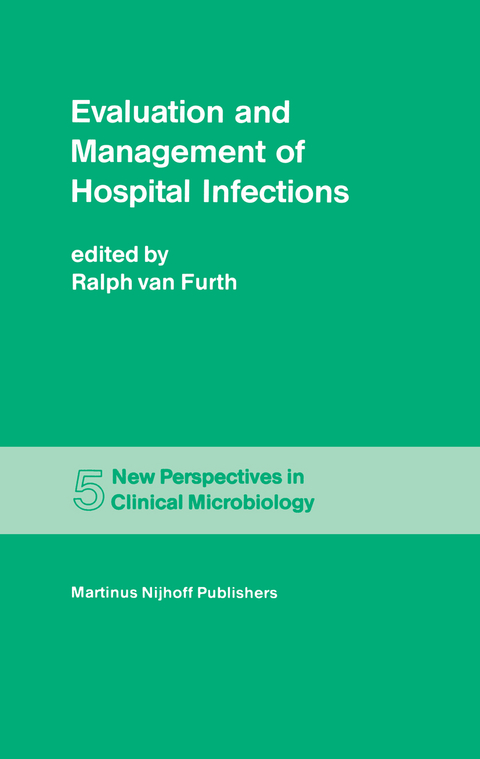
Evaluation and Management of Hospital Infections
Springer (Verlag)
978-94-009-7659-7 (ISBN)
1. Introduction.- 2. Evaluation of antimicrobial resistance.- 3. Plasmid typing as an epidemiological tool.- Discussion.- 4. Clinical implications of acquired antimicrobial resistance.- 5. Antibiotic resistance in various municipalities in The Netherlands.- Discussion.- 6. Antibiotic prescribing in a general hospital.- 7. Insights into antibacterial pharmacotherapy and measures leading to control of drug use.- Discussion.- 8. Antimicrobial resistance in hospital: New trends and control.- 9. Computer monitoring of drug resistance in the hospital.- Discussion.- 10. Occurrence of infections and antibiotic prophylaxis in non-surgical patients.- 11. Implications and consequences of antimicrobial therapy for the development and transfer of resistance.- Discussion.- 12. Don’t touch the blade: Control of surgical sepsis.- 13. Comments on the occurrence and prophylaxis of surgical infections.- Discussion.- 14. Nosocomial infections in compromised hosts.- 15. Antibiotic strategy in myelocompromised patients.- Discussion.- 16. Bacterial infection in the critically-ill neonate.- 17. Nosocomial infections in the neonatal intensive care unit.- Discussion.- 18. Infection in the renal transplant patient.- 19. Factors contributing to an increased infection rate after kidney transplantation.- Discussion.- 20. Cost-benefit aspects of surveillance of hospital infections.- 21. Comments on issues in studying the cost-benefit of hospital infection surveillance and control programs.- Discussion.- 22. Future trends in nosocomial infections: Understanding selectivity and specificity in microbial opportunism.
| Reihe/Serie | New Perspectives in Clinical Microbiology ; 5 |
|---|---|
| Zusatzinfo | XII, 266 p. |
| Verlagsort | Dordrecht |
| Sprache | englisch |
| Maße | 155 x 235 mm |
| Themenwelt | Medizin / Pharmazie ► Medizinische Fachgebiete ► Mikrobiologie / Infektologie / Reisemedizin |
| Studium ► Querschnittsbereiche ► Infektiologie / Immunologie | |
| Naturwissenschaften ► Biologie ► Mikrobiologie / Immunologie | |
| ISBN-10 | 94-009-7659-3 / 9400976593 |
| ISBN-13 | 978-94-009-7659-7 / 9789400976597 |
| Zustand | Neuware |
| Haben Sie eine Frage zum Produkt? |
aus dem Bereich


